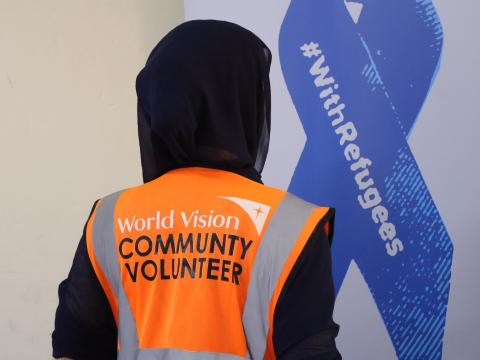Turning pain to living a life with purpose: Sudanese refugee and sexual abuse survivor story of survival

Rhodora* (not her real name), a 25-year-old university student, dreams of becoming a banker. Her father was a businessman in Central Darfur, Sudan, and her family enjoyed a comfortable life until November 2023, when tragedy struck. One evening, seven armed men raided their home, holding her father at gunpoint and robbing them of all their valuables—money, phones, and jewellery. Then, they took Rhodora and brought her to a dark place that she says felt like a camp filled with armed men. "When we were captured, three girls were taken to different rooms. I was so scared when I heard one of the girls screaming,” Rhodora shared. "Then, three armed men forced me into a room and raped me,” she recalled as tears rolled from her eyes.
Rhodora is one of the many girls who have faced sexual abuse since the Sudan crisis started in April 2023. A report released by World Vision in August 2024 indicated that nearly 7 million people in Sudan were at high risk of gender-based violence, including sexual exploitation, further demonstrating that the crisis has a catastrophic impact on women and girls due to the presence of armed actors, displacement, weakened social and protective networks, and insufficient access to services.[1] The Sudan Humanitarian Crisis has displaced more than 11.5 million, mainly women and children, and claimed the lives of over 26,000 people. Here in South Sudan, at least 800,000 have sought refuge, and more than 14,700 have stayed at the Wedweil Refugee Settlement site in Aweil, Northern Bahr el Ghazal.
After three long days in captivity, Rhodora managed to escape. But when she got home, she found that her family was gone. Determined to find them, she learnt they had fled to South Sudan. With only 20,000 Sudanese pounds, an equivalent of 33 US dollars, she realised that she did not have enough money for the journey to the border of South Sudan. So, she decided to walk for four days to reach the Wedweil Refugee Settlement. By the time she arrived, her legs were swollen and exhausted.

At the settlement, Rhodora received medical help from another organisation. But at that time, she did not have enough courage to disclose her story. She was afraid of being judged. “I felt lost in thought. After walking for days, I still hadn’t found my family. I thought my life was over,” Rhodora recalls. The last time she saw her family was during the attack.
In February 2024, Rhodora learned about Women and Girls Friendly Space. "I visited this centre and met Angelina," Rhodora explained. "She listened to my story and told me about the support and services available." The centre is managed by World Vision South Sudan, with funding support from World Vision Singapore. It provides individual and group counselling, life skills training, and social activities for women and girls who have been assaulted. The centre also offers training on the laws of South Sudan to refugee women and girls.

World Vision took Rhodora to Aweil Civil Hospital for a sexual assault examination. There, doctors checked her emotional and physical health. They also checked her for any sexually transmitted diseases and pregnancy, all of which came back negative. World Vision then placed her in counselling programs to help her heal. In addition, Rhodora received cash assistance to support her needs.
At first, Rhodora was scared to talk to men and boys. She felt sad and could cry because she thought every man had hurt her. But over time, she began to heal. “I found strength and support in the community around me,” she says, expressing gratitude for the counselling, trainings, and financial support she is receiving from World Vision.
Today, Rhodora is a gender-based violence (GBV) community volunteer. She helps other women who have faced similar problems in her community to get the help they need to heal. “I usually tell other women and girls that they are not alone. At our centre, we share our experiences and learn new skills like knitting bedsheets, drawing Henna, and baking bread to support our families. We are also trained on the laws of South Sudan,” she says.
Story and photos by Moses Sakondo, Communication Officer | World Vision South Sudan